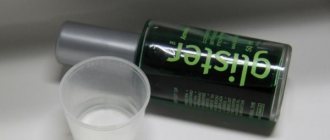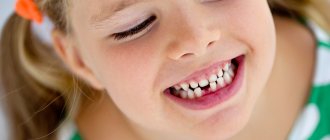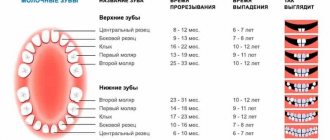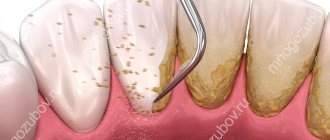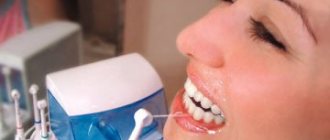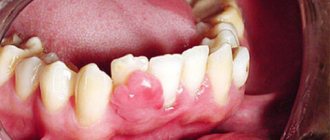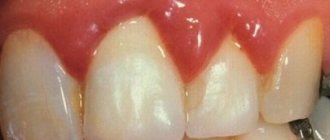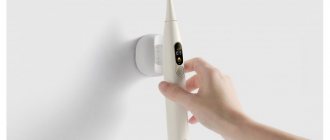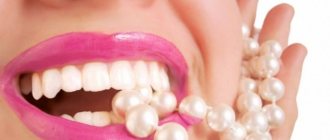People knew that they needed to brush their teeth after eating several thousand years ago. But until about the 20th century, only a few people could boast of healthy teeth. Most of the population did not pay due attention to oral hygiene. And in the arsenal of those who did take care of their teeth, there were not many cleaning devices.
Today, stores offer a variety of oral care devices and products. However, most people only use a toothbrush, although flossing also has its fans. According to the Dental Association, a toothbrush can remove about 30-40% of plaque. A regular toothbrush does not remove plaque from interdental spaces and hard-to-reach places. For oral hygiene to be truly effective, it is necessary to use several tools to clean your teeth. One of such devices is the Waterpik irrigator, you can buy it in St. Petersburg or another city in our stores.
Toothbrush
Despite the fact that a toothbrush by itself is not able to completely clean teeth of bacteria and plaque, it should be used daily. The hardness of your toothbrush should match your teeth type. If thin enamel is brushed daily with hard bristles, this will result in big problems with your teeth. It is better to consult your dentist regarding the type of brush hardness. A toothbrush can be used for no more than 3 months, after which it becomes a breeding ground for bacteria and germs.
There are traditional and electric toothbrushes.
Dentists often hear the question - which brush to choose? The answer depends on how much time you spend brushing your teeth. You need to brush your teeth for 3 to 5 minutes, spending time on each tooth. Many people brush their teeth on the go, resulting in little benefit from brushing. An electric toothbrush is better at removing plaque and can clean your teeth in just 2 minutes.
Basic oral hygiene products
The main means of oral hygiene primarily include toothbrushes, the varieties and configuration of which we will consider below:
Toothbrushes
There are two types of these devices: conventional (manual) and electric. Regardless of what type of toothbrush it is, one of the main criteria for choosing it is the bristles.
Bristles by degree of hardness
- Hard (super hard). It is used strictly on the recommendation of a dentist and is especially suitable for people susceptible to excessive tartar formation. In addition, stiff bristles may be suitable for cleaning dentures;
- Medium hardness. It is considered a classic option, suitable for almost everyone without any restrictions. It is also well suited for the care of orthodontic structures and dentures;
- Soft. Recommended for use by children, as well as people suffering from bleeding gums and increased sensitivity of tooth enamel;
- Super soft. The use of such toothbrushes may be recommended by the attending physician based on the individual characteristics of the patient.
The bristles of toothbrushes are
- Natural. Made from animal guard hair. The main disadvantage of such bristles is their rapid wear and tear;
- Synthetic. Made from safe synthetic materials. It is distinguished by its long-term preservation of its qualities and ease of processing, guaranteeing the removal of contaminants after use.
In addition to the above, it is worth paying attention to the configuration of the bristles:
- Beveled with a slope. Allows you to most thoroughly remove plaque, including from the distant molars;
- Multi-level bristles. Allows you to remove food particles and plaque not only from the surface of the teeth, but also from the interdental crevices;
- Collected in bunches. Allows you to increase the coverage area, which also includes the necks of the teeth.
In addition to the main selection criteria listed above, it is also worth paying attention to the size of the cleaning head and its mobility. Movable heads are suitable for people who should avoid excessive pressure on teeth, gums, or orthodontic structures installed in the oral cavity to avoid damage.
Choosing an Electric Toothbrush
In addition to the main criterion, which is bristles, when choosing an electric toothbrush, you need to pay attention to:
- The shape of the cleaning head. They are round and elongated;
- Ability to change speed modes;
- Possibility of changing the direction of rotation;
- Mode type: ultrasonic, sonic, or ionization.
It is worth noting that it is advisable to use an electric toothbrush only after prior consultation with a dentist, who will help you choose the most suitable option.
Regardless of the type of toothbrush, replacement with a new one is carried out no later than 3 months from the start of use. Manual brushes must be completely replaced, and for electric brushes, the cleaning attachment must be replaced.
Toothpastes
All toothpastes are divided into three main groups:
- Hygienic. Designed for everyday oral hygiene;
- Therapeutic and prophylactic. The composition of such pastes includes components,
- Specialized. The use of this type of toothpaste is prescribed by the attending physician and is necessary to maintain the therapeutic effect achieved by the main treatment. The composition of such pastes includes medicinal components;
- Whitening. Pastes with a whitening effect contain abrasive particles and can whiten enamel by 1-1.5 tones. However, long-term use of whitening toothpastes is not recommended due to the risk of enamel damage.
Having a preventive and not pronounced therapeutic effect. As a rule, herbal preparations or formulations enriched with fluorine and calcium are used as specialized additives;
Dental floss
Even the most modern toothbrush cannot get into the spaces between your teeth. But it is in these places that pieces of food get stuck, which then become a habitat for billions of bacteria. If you do not clean food from the interdental spaces, sooner or later caries will form in these places. Dental floss, or floss as it is also called, is a simple and at the same time very effective device for cleaning the spaces between teeth.
In pharmacies you can find various modifications of floss for cleaning teeth. Depending on the width between the teeth, you can select the optimal width floss. Floss can be waxed or unwaxed. Wax-impregnated dental floss is perfect for those who are just starting to use this device. However, non-waxed floss does a better job of cleaning the surface of the tooth. Use dental floss with caution to avoid damaging your gums. Most doctors recommend flossing daily before bed.
Additional oral hygiene products
In addition to the main ones, there are also additional oral hygiene products , in combination with which you can fully care for the health of your teeth and gums.
Dental floss
Dental floss is a means for daily use, but cannot act as a replacement for a toothbrush. The main function of floss is to remove food debris and soft plaque from the interdental spaces. Although dental floss is not a basic means of hygiene, its importance cannot be underestimated, since its use is an important factor in the prevention of caries. Accumulating in interdental spaces inaccessible to a toothbrush, food debris and dental plaque become a favorable environment for the accumulation of bacteria, which in turn leads to the development of caries. This is why flossing is most important after meals, or in cases where a toothbrush is not available. Types of dental floss:
- Round. Universal floss, suitable for interdental gaps of any size;
- Flat. Necessary for people with tightly-fitting teeth and, accordingly, narrow spaces between dental units;
- Tape. Universal threads, but their use is most advisable in case of large distances between teeth;
- Volumetric. They are characterized by the ability to swell under the influence of saliva, which makes them most productive in terms of removing contaminants.
In addition to the above, dental flosses have differences in the impregnation applied to them. There is a wide variety of processing compounds aimed at:
- Facilitation of thread sliding (waxing);
- Elimination of unpleasant odor and creation of aftertaste (menthol);
- Disease prevention (fluoridated);
- Elimination of bacteria (antiseptic).
However, it is necessary to take into account that despite the large number of advantages, dental floss also has a number of contraindications. Thus, their use is not advisable for people who have orthodontic structures, increased bleeding gums or advanced forms of caries.
Irrigators
An irrigator is a device that cleanses the oral cavity using a pulsating stream of water directed under high pressure. Types of irrigators:
- Portable. They are battery operated and have a pressure control function;
- Stationary. Attached directly to the wall, or any horizontal surface;
- Flow-through. They work by connecting to the water supply system.
- Mechanical. The work is carried out by a pump that pumps up water.
The pressure is adjusted using the water supply valve;
It must be taken into account that the irrigator is not a replacement for a toothbrush, but is an auxiliary one. The use of an irrigator will be most appropriate for people who have orthodontic structures installed and increased gum bleeding. The latter is related to the massaging ability of the irrigator.
Chewing gum
The use of chewing gum as a means of oral hygiene will be justified only if it is done without abuse. It is important to know that chewing gum can be both beneficial and harmful. Dentists recommend chewing gum for no more than 5 minutes and strictly after eating. In this case, chewing gum will help:
- Remove food residues;
- Stimulate digestion and the production of saliva, which is a natural cleanser and eliminates a number of bacteria from the oral cavity;
- Freshen your breath. It is worth remembering that chewing gum does not fight the unpleasant odor, the source of which is most often bacteria, but only masks it;
- Provide a massaging effect on the gums;
- Create a relaxing effect that reduces excitability.
Uncontrolled and prolonged use of chewing gum can lead to a number of negative consequences:
- Periodontal fatigue;
- Thinning of tooth enamel;
- Overstrain of masticatory muscles and ligaments;
- Disturbances in the functioning of the gastrointestinal tract;
- Ingestion of bacteria removed from the surface of the teeth.
Rinse aids and foams
These products help to consolidate the results achieved by cleaning with a toothbrush. These products not only freshen breath, but are also able to create a thin protective film on the surface of the teeth that prevents the accumulation of bacteria. Thus, the use of these products is not an alternative to a toothbrush or floss, but it is advisable to use them after every meal and before bed.
Despite the presence of a large number of modern oral hygiene products available in everyday life, at least once a year it is necessary to visit a dentist who will carry out professional teeth cleaning. Even regular use of the hygiene products listed above cannot guarantee the absence of the formation of hard dental plaque, which only a doctor can remove.
Description of the irrigator
This modern device is also designed for cleaning interdental spaces and hard-to-reach areas. Its action is to direct a stream of water to areas that require cleaning. An irrigator is quite an expensive thing, but its use can effectively clean teeth from stuck food, plaque and bacteria. Unlike dental floss, a brush for cleaning teeth or a toothpick, it is impossible to damage the gums with an irrigator. Using an irrigator is absolutely safe for enamel and gums. Modern irrigators are the best alternative to all devices for cleaning hard-to-reach places between teeth.
Benefits of products for the prevention of inflammation in the oral cavity
Modern products created for the purpose of preventing and protecting the oral cavity can significantly reduce the risk of inflammatory processes and oral diseases. The oral cavity is the place where a huge number of harmful bacteria and microbes constantly accumulate, and the above remedies help fight them and efficiently cleanse the teeth and gums of pathogens, carriers of inflammation, and also eliminate bleeding.
The active components of these products, which are safe for the body, promote rapid healing of wounds, cracks, and ulcers. They also help eliminate high sensitivity, pain and help a person again begin to enjoy the taste of food and lead a rich, fulfilling lifestyle. Also, special products contain the necessary amount of vitamins and minerals, which the body often urgently needs, and which strengthen the gums, increase the speed of their healing, and also prevent their inflammation.
How to choose a mouthwash
Mouthwash is a lifesaver for your teeth after meals. Gently acting on the tooth surface thanks to its liquid composition, the rinse “washes away” food debris and saturates the tooth surface with healing and strengthening elements.
How to choose a rinse aid? What's more important than its taste? After all, it would seem that the choice of mouthwash depends only on a person’s “taste” preferences - whether he wants a mint-flavored product or some other flavor. Actually this is not true. Rinse aids from different manufacturers have different concentrations, some of them have preventive functions, the other part are exclusively therapeutic, which means they should be used in the presence of certain diseases.
An important element in the composition of the mouthwash is an antiseptic. The mildest and most effective is triclosan. Another antiseptic, chlorhexidine, has a less gentle effect, so its use is only permissible with the approval of your doctor.
Try to choose a mouthwash without dyes. The dye is only needed for visual effect and does not have any useful cleaning function. Herbal extracts are an additional useful component in the rinse. It fights gum inflammation and reduces tooth sensitivity.
Pay attention to the concentration of the mouth rinse. If it is high, it must be diluted with water before use. Manufacturers write about this on the bottle, so read all warnings before use.
Rinse aids are usually divided into anti-caries and anti-inflammatory. This division is conditional, because in most cases the effect of a mouth rinse is complex.
If you have a specific problem with your teeth (for example, decay of the tooth surface), then, on the recommendation of your dentist, you need to use a mouth balm that is suitable for solving this specific problem. For example, balms containing fluorides are well suited for strengthening tooth enamel. We invite you to a preventive examination at our Dentistry near Shchelkovskaya. You can make an appointment with a dentist by calling the clinic at 8 (495) 033-00-63 or through our website by filling out the online appointment form. If you start treatment on the day of your appointment, for example, carry out hygienic cleaning, then the dentist consultation will be free for you.
Hidden signs and oral problems
Such insidious diseases, such as periodontitis, for example, can hide for a long time without allowing themselves to be detected. When their symptoms become obvious, the oral cavity is often in a very deplorable state. It is important to remember that your mouth may smell unpleasant due to the presence of inflammatory processes. A person may also be alerted by the discomfort he feels while chewing food. This process should be absolutely painless, pleasant and easy. Scientists have long discovered that people may be predisposed to problems with teeth and gums. If relatives suffer from inflammatory gum diseases and are faced with various oral problems, you should initially be extremely attentive to yourself: visit the dentist regularly, use high-quality products for the care and prevention of inflammatory processes, and lead a healthy lifestyle. Only these measures will help preserve the beauty and health of your oral cavity for many years.
This article is for informational purposes only, please consult your doctor for details! Ask your doctor about contraindications and side effects.
In what cases should you sound the alarm?
It is important to notice warning signs in time and not to treat them with disdain. Noticed blood during regular hygiene procedures related to the oral cavity is a clear sign that you need to seek help from a dentist and treat your gums. Their excessive sensitivity is also a reason to sound the alarm. The gums should not swell or react to hot and cold foods with acute pain. Experts advise paying attention to whether the distance between the teeth has changed? If the answer is yes, you should be concerned.
How to prevent problems with teeth and gums
To maintain oral health for a long time and preserve the beauty of your teeth, it is important to take good care of yourself. The absence of fillings and unpleasant holes that often cause many problems does not mean that the oral cavity is absolutely healthy. How to protect yourself from inflammatory processes occurring in the oral cavity? Hygiene procedures should be carried out after each meal, and time should be spent brushing your teeth in the mornings and evenings. You must choose your brush and toothpaste with special responsibility. Doctors recommend changing your brush every 2-3 months. Plaque tends to harden quickly, so it must be removed regularly and diligently, otherwise it will be extremely difficult to do it yourself.
Don't ignore dental floss, use it regularly. It can be extremely difficult for a brush to reach the space between the teeth, but floss will do it with ease. It will easily remove remaining pieces of food and clean problem areas. Don't forget about going to the dentist. They must be regular. It is equally important to consider the following recommendations:
- Remember about a healthy lifestyle.
- Eat high-quality, natural food, trying to exclude everything sweet, fatty, overly spicy, and salty.
- Play sports, walk in the fresh air.
- Use oral care products.
- Avoid smoking and alcohol abuse.
Professional teeth cleaning
Professional dental care is performed only in a clinical setting. In most cases, we are talking about removing tartar and yellow plaque on the enamel. This cannot be done at home; special equipment is required.
Professional care is provided in two ways:
- Ultrasound. This is a modern and painless technique that helps get rid of dental plaque. The surface of the teeth is exposed to ultrasound, which effectively destroys tartar. The remaining particles are washed with water.
- Air-Flow. This is an innovative whitening system based on a strong air flow with the addition of water and soda. Targeted action eliminates deposits accumulated on the enamel and helps get rid of yellow plaque.
Both procedures resemble oral hygiene with irrigators. Therefore, dentists recommend using these devices for home care of teeth and gums.
